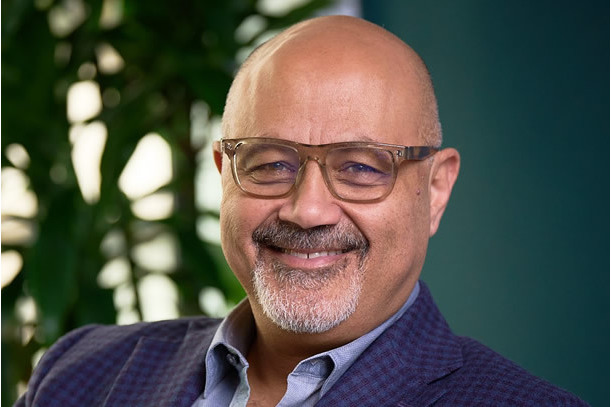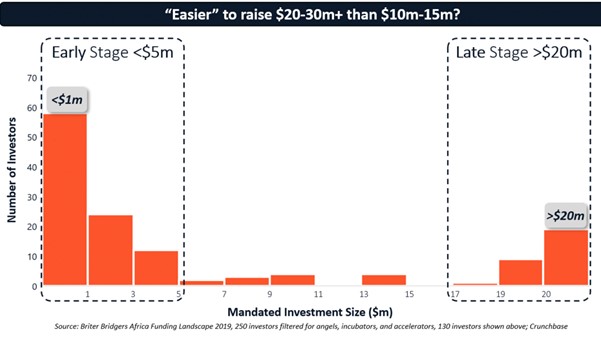The most valuable ‘white spaces’ today in African investing

Feature Highlight
The first gap is in the range of $10-25 million scale-up funding rounds. The second is the lack of customised, structured non-equity financing to support company growth.
In the vast and diverse landscape of African growth investing, more opportunities abound today than ever before. Africa’s recent growth surge has created a large group of companies already scaling successfully, while the current market environment has reduced the capital available. This untapped potential between high quality investment “demand” and reduced capital “supply” extends to various commercial sectors, including logistics, HR, and insurance, all presenting significant high value “white spaces” waiting to be filled. For those looking to invest in Africa, especially in high-growth, digitally-driven companies, these markets offer immense potential.
African Investment in Developed Digital Sectors
Africa’s digital sectors are leading the way in terms of economic viability on the continent. These sectors encompass fintech, tech-enabled commerce (such as logistics, supply chain, mobility, digital health, and education), and renewable energy. These industries revolve around key themes like financial inclusion, climate change mitigation, and poverty alleviation.
With low manufacturing capabilities, high youth unemployment rates, poor-quality health care, and inadequate infrastructure, Africa’s sustained growth now depends on its digital economy. Crucially, the continent has historically exhibited a remarkable ability to “leapfrog,” for example by embracing a mobile-first approach and swiftly adopting digitally managed renewable energy. This digital-first mindset, often born out of necessity, has made these sectors essential employers, providing opportunities for the millions of Africans entering the job market annually.
A Growing Investment Landscape
In recent years, investment in African start-ups has surged, exceeding $5 billion in 2021. However, this figure has dipped sharply due to global macroeconomic issues and specific African challenges. Despite this growth, two significant “white spaces” continue to exist in the African investment landscape.
The first gap is in the range of $10-25 million scale-up funding rounds. The second is the lack of customised, structured non-equity financing to support company growth. Notably, because the vast majority of African investments are impact or mission-driven, focusing on positive social and economic change, this provides a natural path to overlay specific investors’ objectives, such as gender-lens investing, climate positivity, or financial inclusion.
The $10-25 Million Funding Gap
In the chart below, based on proprietary research, we can see the number of investors active in Africa categorised by the size of their investments. On the left are the traditional African start-up investors, usually committing less than $5 million. To the right are investors, including international or regional players, whose criteria demand larger investments, usually exceeding $20 million. This gap between $5-20 million is where relatively few investors are actively engaged, creating a significant opportunity for future investments.
There is a yawning gap:

Several forward-thinking funds have recognised this gap and are adapting to address it. Investors like Norrsken, Partech, and TLCom have or will naturally raise larger funds to support these companies’ growth. Simultaneously, the number of quality African companies qualifying for such funding is on the rise, leading to increased demand that will outstrip the capital supply for many years. This persistence in the funding gap presents a compelling investment opportunity.
Structured Financings in Africa
Non-equity capital is still in its early stages of development in Africa. Typically, local currency debt is primarily offered by banks, but these institutions are known for being burdensome, expensive, and reluctant to support companies looking to invest in growth, which naturally reduces profitability in the short term. Moreover, their financial products tend to be relatively basic and are usually accessible only to larger, well-established businesses at the top of the economic hierarchy.
Dollar-denominated debt, on the other hand, is available in various forms, with a significant portion originating from Development Finance Institutions (DFIs) or similar organisations. However, the innovative financial structures and speed of execution required in Africa are often lacking from these sources.
This issue is compounded by the fact that many African companies, particularly those aiming for growth, rely at least in part on selling money in some form to generate profits in their operations. This can take the form of financing productive assets like motorcycles, mobile phones, solar pumps, or even embedded finance such as providing financing to retailers for weekly stock replenishment, funding agricultural inputs with guaranteed off-take, or supporting the deployment of POS terminals for agent banking. We estimate that over 70% of African scale-up businesses generate income through these “money resale” activities.
This dependence on money resale for income makes it financially impractical to rely solely on equity financing. Equity returns are typically around 30% annually, while financing margins, especially for commercial financing, are usually much lower. Consequently, companies cannot afford to “burn” capital in this way to simply fuel growth.
Examples of this kind of capital are diverse. They include payments companies seeking up to $10 million to support the purchase and distribution of POS terminals to contracted merchants, providers of renewable power products looking to transfer an initial $20 million+ of dollar-indexed receivables generated from three markets to an off-balance sheet Special Purpose Vehicle (SPV), with the potential to expand to $40-50 million to enhance liquidity, and even large companies looking to finance a second year of market entry through a mix of debt and equity, since banks typically require 2-3 years of evidence before lending the first $, even if a client has $100m+ of revenue already.
This structured finance gap is often filled by DFIs, which, while invaluable to the African ecosystem, may not be an ideal fit for most growing companies. They tend to be cumbersome, inflexible, demand extensive reporting, and have less tolerance for the dynamic evolution of growing businesses. Although some flexibility has been introduced in recent years, the need for structured finance remains unmet across the continent, necessitating earlier risk-taking and a faster response time than current providers can offer.
Victor Basta is CEO of DAI Magister, a global investment banking firm.
Other Features
-
Can you earn consistently on Pocket Option? Myths vs. Facts breakdown
We decided to dispel some myths, and look squarely at the facts, based on trading principles and realistic ...
-
How much is a $100 Steam Gift Card in naira today?
2026 Complete Guide to Steam Card Rates, Best Platforms, and How to Sell Safely in Nigeria.
-
Trade-barrier analytics and their impact on Nigeria’s supply ...
Nigeria’s consumer economy is structurally exposed to global supply chain shocks due to deep import dependence ...
-
A short note on assessing market-creating opportunities
We have researched and determined a practical set of factors that funders can analyse when assessing market-creating ...
-
Rethinking inequality: What if it’s a feature, not a bug?
When the higher levels of a hierarchy enable the flourishing of the lower levels, prosperity expands from the roots ...
-
Are we in a financial bubble?
There are at least four ways to determine when a bubble is building in financial markets.
-
Powering financial inclusion across Africa with real-time digital ...
Nigeria is a leader in real-time digital payments, not only in Africa but globally also.
-
Analysis of NERC draft Net Billing Regulations 2025
The draft regulation represents a significant step towards integrating renewable energy at the distribution level of ...
-
The need for safeguards in using chatbots in education and healthcare
Without deliberate efforts the generative AI race could destabilise the very sectors it seeks to transform.
Most Popular News
- NDIC pledges support towards financial system stability
- Artificial intelligence can help to reduce youth unemployment in Africa – ...
- Global trade to hit record $35 trillion despite slowing momentum
- ChatGPT is now the most-downloaded app – report
- Green economy to surpass $7 trillion in annual value by 2030 – WEF
- CBN licences 82 bureaux de change under revised guidelines












